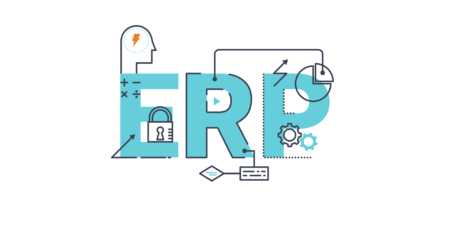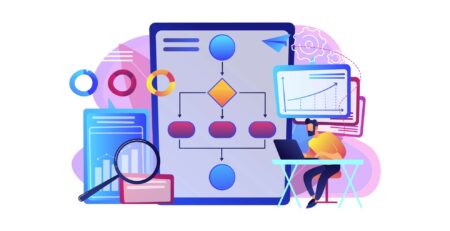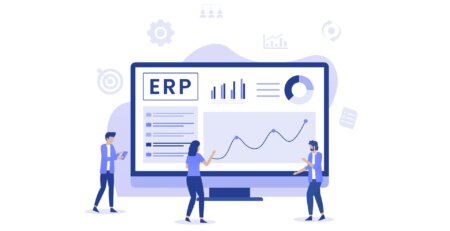Top 5 Advantages of ERP Software in Supply Chain Management
What is Enterprise Resource Planning (ERP)?
ERP is a common acronym for enterprise resource planning. ERP is an integrated management of the business processes in real time which is moderated by technology. This software solution provides businesses with a constant integration and view of core business processes such as human resources, finance and operations. ERP systems implemented across organizations facilitate transactions that are accurate and error-free.
Previously, the concept of ERP implementation was limited to big companies only. But, with the advancement of technology advancement, the trend has changed. Even the small businesses today adopt and implement ERP systems to avail various benefits associated with it. The evolution of ERP has taken a period of time and has now extended to ERPs on cloud.
What is Supply Chain Management (SCM)?
Most commonly, supply chain management is defined as the flow of goods and services in a way that creates competitive advantage for businesses in the market and helps organizations to maximise the customer value. SCM includes all processes starting from transforming the raw materials to the point where they are converted into final products. The idea of supply chain management is the development of supply chains by the suppliers which are efficient yet economical. The efficient management of supply chains helps the companies to cut down on the costs that are extra and deliver products to customers quickly. The process of supply chain is below;
The main function of the supply chain is to cut down the costs while minimizing the shortage of products. Moreover, it helps in increasing the efficiency and productivity of the organizations. Having an efficient supply chain management, the organization is able to collaborate and build mutual trust among the supply chain partners.
Types of WorkFlows in Supply Chain Management
There are three types of flows in supply chain management.
-
- Material Flow; the material flow is also known as the product flow. This flow comprises the movement of goods from the supplier to the consumers. In the case of repairing or returning, the movement of goods in this flow is from customers to suppliers.
- Financial Flow; there are two perspectives of financial flow in supply chain management. This part of the supply chain represents the invoices and credit terms. Moreover, this part requires high-level cooperation between the customers and the suppliers.
- Information Flow; the supply chain management comprises diverse information such as product data, levels of inventory, delivery schedules and much more. Enhance the effectiveness of the supply chain with a better and faster flow of information.
Advantages of ERP in Supply Chain Management
Enterprise resource planning (ERP) plays an essential role in supply chain management because there is a need to interact with multiple suppliers in this process. The ERP system consists of various modules that assists the company with its various business processes. There are some advantages of using ERP systems in supply chain management such as;
ERP in SCM helps in Monitoring and Management of Processes
Supply chain management performs the best when all the departments and operations involved function in an efficient way. Making use of ERP systems in SCM helps organizations to monitor and keep track of activities across multiple channels with the aid of a centralized system. Hence, it helps in making the businesses competitive and stay on track while being productive.
Helps in Accurate Tracking of Orders
When it comes to orders, the efficiency delivery and tracking of orders become critical. Organizations can update and store the information related to orders and tracking when they implement ERP systems for supply chain. Efficient ERP systems help in keeping an eye on new orders, their processing and the orders which are out for delivery.
Effective Management of Risk
Manage the risk associated with your business effectively with the help of ERP systems. For example, when one supplier is not able to meet the order demand, the ERP system will immediately notify while assigning the order to the alternative supplier. The management of risk becomes efficient with the use of ERP systems in supply chain management.
ERP in SCM helps in making Faster and Informed Decisions
ERP systems are efficient and highly mechanized. They help businesses to access information in real time which subsequently leads to better and fast decision making. For example, with the help of the ERP system you can monitor which product is selling more frequently. Once you know, you can over stock the product. Similarly you can decide to discontinue and overstock the product by montioring the sales of each product.
ERP Systems Allows Efficient Handling of Supplies
With the help of advanced ERP systems, track your orders and supplies accurately. Manage inventory effectively and handle supplies efficiently as this will help the organization to reduce overhead costs and increase business turnover.
The impact of ERP systems on supply chain management is evident from its advantages. With many complexities in the business processes, ERP systems helps in eliminating errors and makes business processes efficient. Hence, making use of ERP systems in supply chain management has distinctive advantages which overall improves the efficiency of the organization including SCM.










Leave a Reply